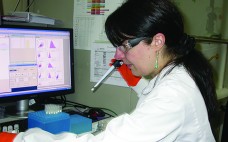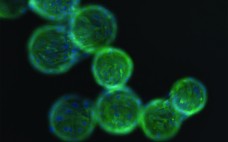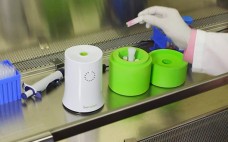Lonza, a global leader in the field of cell therapy development and manufacturing, announced today the publication of an article about the recent completion of the production of clinical-grade induced Pluripotent Stem Cells (iPSCs). The success was reported in a peer-reviewed article titled “cGMP-Manufactured Human Induced Pluripotent Stem Cells Are Available for Pre-clinical and Clinical Applications” in the scientific journal Stem Cell Reports. The article can be found in Lonza’s Knowledge Center: www.lonza.com/ipscarticle The discovery of iPSCs and the availability…
Search Results for: regenerative medicine
Cell Therapy Scaling: Beyond the Biology
Few other areas of medical research have been the source of as much promise (and hype) as cell therapies. Therapies that use engineered or repurposed versions of our own cells have inspired researchers and media alike. However, the pace at which effective therapies have made it out of laboratories and into clinical practice has not met the world’s high expectations. Although the biology has continued to press onward, the gap between R&D and commercialization remains substantial. In 1957, the first…
Manufacturing Human Induced-Pluripotent Stem Cells for Clinical Application
The reprogramming of human somatic cells into induced pluripotent stem cells (iPSCs) offers tremendous potential for cell therapy, basic research, disease modeling, and drug development. Human iPSCs can be generated in culture, expanded, and then used to manufacture clinical-grade cells of almost any adult cell type. Given their great capacity for self-renewal, they are attractive as input materials for current good manufacturing practice (CGMP) operations. For human iPSCs to fulfill their therapeutic potential, however, it is necessary to develop a…
From the Editor
We have had a busy summer, first adding to our annual Yearbook issue a supplement summarizing the well- attended presentations from our BioProcess Theaters at the Interphex and BIO events. And this month you are receiving our regular issue and annual guide to the upcoming BPI Conference and Exposition (25–29 October in Boston, MA) along with a sponsored supplement introducing cell-therapy initiatives at Pall Life Sciences and the third part of our special- report series featuring CMC Strategy Forum consensus…
Variables in “Passive” Cryopreservative Methods: Standardizing Cell-Based Assays By Reducing Cryopreservation-Induced Variability
Cells have become essential in modern medicine as therapies, vehicles for producing high‑value therapeutics, and tools for high‑throughput screening of pharmaceutical compounds. In the latter area, more than 50% of drug discovery screens use cell‑based assays, predominantly targeting receptors and ion channels using fluorescence‑based measurements, in either or both high‑ throughput and high‑content formats (1). Alongside a cell therapy market estimated to be worth some $5.0 billion by 2015 (2), the larger cell‑ based screening market is estimated to be…
Expansion and Characterization of Mesenchymal Stem Cells on Pall SoloHill® Microcarriers
Mesenchymal stem cells (MSCs) are self-renewing cells that differentiate into several terminally differentiated cell types. These cells have been isolated from multiple sources such as bone marrow, adipose tissue, peripheral blood, and other adult tissues(1–6). The interest in these cells is that they hold the potential to cure disease and are being pursued in clinical trials. Three emerging fields of interest for stem cells are cell therapy, regenerative medicine and screening of candidate drugs. In many cases, poor correlation between…
Single-Use Technologies: BIO Theater @ Interphex 2015
Andrew Lidums (NA business development manager, Parker domnick hunter) 2:30–2:55 pm Implementing a Risk-Management–Based Approach to the Prevention of Mycoplasma Contaminations Lidums began with a recent report from Genentech, where a 150-µm long Leptospira organism from a drainage ditch outside the facility managed to penetrate 0.1-µm filters. The company solved this problem by lowering the temperature of the filtration operation, which made the bacteria more rigid and kept them from getting through. Clearly, however, contaminations happen even at large facilities.…
ThawSTAR™ Automated Cell-Thawing System: Breakthrough Adaptive Sensing Technology for Reproducible, Standardized Cell Thawing
Advances in cryopreservation techniques have been crucial for the substantial progress achieved in many fields, including cell biology research, drug discovery, bio-banking, and assisted reproduction. While cryopreservation techniques have markedly improved, downstream cell thawing techniques have thus far been neglected, even though proper thawing of cryopreserved materials is essential for optimal cell viability. The success of high-promise fields such as cellular therapy and regenerative medicine require reproducible and standardized handling of the therapeutic cells, which includes thawing both during manufacturing…
Goodwin Biotechnology Announces the Completion of cGMP Manufacturing of an IgM Monoclonal Antibody and IgM : Ligand Conjugate for Q Therapeutics
Goodwin Biotechnology, Inc., a biological Contract Development and Manufacturing Organization (CDMO) that specializes in bioprocess development and GMP manufacturing of biopharmaceuticals utilizing Mammalian Cell Culture expression systems and Bioconjugation technologies, has partnered with Q Therapeutics, Inc., a clinical-stage developer of novel cellular therapies for central nervous system (CNS) diseases to provide GMP antibodies for manufacture of clinical trial materials. To do so, Goodwin Biotechnology completed Process Development, Scale Up, and cGMP manufacturing of an IgM antibody and an IgM: Ligand…
Caladrius Biosciences Announces First Patient Dosed in Phase 3 Immunotherapy Trial for Melanoma
Caladrius Biosciences, Inc. (Nasdaq:CLBS), a cell therapy leader with a late-stage clinical program for immuno-oncology, announced today the dosing of the first patient in the Intus Phase 3 clinical trial. The Intus trial is investigating the efficacy of the Company’s patient-specific targeted cancer immunotherapy candidate CLBS20 (also known as NBS20). The trial is studying CLBS20 in patients with stage III recurrent or stage IV metastatic melanoma. The patient was dosed (with either CLBS20 or control, in accordance with the randomized,…





